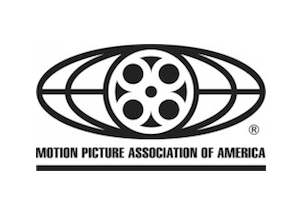BPI success in blocking 21 sites and MPA following in their
footsteps with a blocking order  against 2 streaming sites.
against 2 streaming sites.
Section 97A appears to be moving from strength to strength as the weapon of choice in the quest to combat digital piracy since its introduction and initial Newzbins 2 success.
The BPI have used the legislation to force the
six largest UK internet service providers to block access to The Pirate Bay in2012; followed by Kat, Fenopy and H33t earlier this year. The Summer also saw
success at the hands of FAPL obtaining a blocking order against live streamingservices of football matches. Now, section 97A has struck again.
A court order has been issued, at the request of the BPI,
stating that on 30th October, UK ISPs had to have blocked access to
21 infringing websites. The list of sites ordered to be blocked closely
resembles the list
published by the PPL earlier this year, against which the BPI intended to take
action. The websites blocked include not only "first generation" torrent sites, but also
aggregators, thereby demonstrating the courts' willingness to accept the use of this piece of
legislation to combat piracy, through the means with which consumers access the
infringing content.
However, this time around, there is seemingly no judgment. Although the law itself is well-established in previous
judgments, this may well have angered the burdened ISPs, particularly BT
who in the Newzbin case, argued that floodgates could open.
In addition to the quantitavely largest success on behalf of
the BPI to date, the MPA is having equal joy. In October, 5 further infringing sites
were ordered to be blocked by the close of November, and yesterday, the High
Court issued further orders against ISPs to block streaming sites SolarMovie
and Tubeplus by early December.
This time, Arnold J has issued a written verdict [in [2013] EWHC 3479, available on LexisNexis, but not yet, I am afraid, on BAILII],
in which he states that the section 97A 'principles…are now settled.' In establishing
communication to the public, and in reference to his FirstRow judgment, he ‘acknowledge(s) that it is arguable that the
mere provision of a hyperlink is not enough’, as could be the case for
aggregator and similar sites.
However, he still finds no material difference
between the cases in hand, and FAPL,
and states that the offending sites do communicate to the public, as they ‘intervene in a
highly material way’ for users to access illegal content, and therefore their
part goes beyond the provision of a hyperlink.
His key conclusion is that
‘viewed from the perspective of the user, the Websites do in a very real sense
make the content available to the public’. This practical and literal viewpoint
further demonstrates the breadth of application of section 97A, implying
its impact has only just begun.
[Thanks to my colleague Katharine Alexander for her help in this posting]

No comments:
Post a Comment